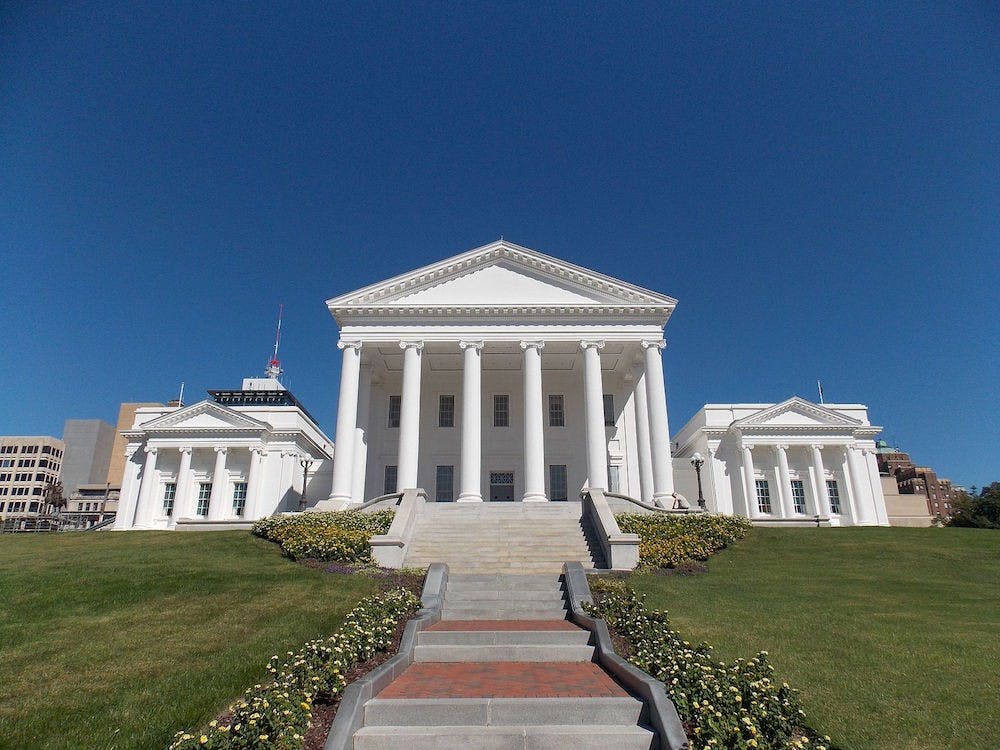Henrico Sen. Jennifer McClellan is a chief-copatron of the Virginia Literacy Act, a bipartisan Senate bill that unanimously passed the Education and Health committee and would make several changes to early student literacy if passed by the whole Senate.
“This legislation is necessary and urgent,” McClellan co-wrote in an opinion piece with other co-patrons of the bill, SB616. “ We have a reading crisis on our hands.”
The bill, if passed, would change Virginia’s literacy curriculum to include more science-based reading research and add support for every person involved in the Virginia school system, including students, teachers and parents, according to the opinion piece.
“Public education is a high priority for me,” McClellan, a Democrat, said. “It has been for a long time, especially as a mother of two kids in Richmond public schools, and I have seen, you know, firsthand how many students have struggled with literacy.”
The first changes the bill would implement would require that people receiving their initial teaching license with certain endorsements at higher education institutions in Virginia would have to demonstrate a mastery of science-based reading research and evidence-based literacy instruction.
Each school board would have to establish a division-wide literacy plan if the bill is passed. Additionally, local school boards would have to provide a program of literacy instruction. This program would include reading intervention services to students in kindergarten through third grade who demonstrate deficiencies based on their performance on the Standards of Learning reading assessment or an early literacy screener provided or approved by the Department of Education.
“The key is to have instruction that meets the needs of students before they fall behind and appropriately prepared staff who [are] able to quickly identify students who are struggling to provide extra supports,” Marcie F. Shea, chair of the Henrico School Board, wrote in an email..
Once a child has demonstrated a reading deficiency, the local school board would provide a reading specialist that would service, develop, oversee and monitor student progress on a reading plan for the student, who would then be reassessed at the end of the school year.
“Henrico Schools does support the goals of SB 616,” Shea wrote. “We do have some reservations about certain aspects of the bill (funding, training, instructional aides), but recognize the importance of strong, science-based literacy programs that address the reading needs of all students. HCPS trusts that if this bill passes, all components will be funded to ensure localities are burdened with additional unfunded mandates.”
If passed, the provisions of the bill would become effective during the 2024-2025 school year.
The Virginia Literacy Act has an identical bill in the house, which was introduced by Del. Carrie Coyner, R-Chesterfield, with support from 17 copatrons, including five Republicans and 12 Democrats. It has unanimously passed the Committee on Education and Committee on Appropriations.
The idea for the Virginia Literacy Act stemmed from Coyner’s work with the UVA Law State and Local Government Policy Clinic. For the past two years, Coyner has been working with University of Virginia law students to study issues impacting Virginian children in elementary schools. After learning about the data associated with falling child literacy rates in Virginia, Coyner decided to introduce this bill with bipartisan support.
Enjoy what you're reading?
Signup for our newsletter
According to research conducted by UVA’s School of Education and Human Development, significantly more students ended the 2021 school year at high risk for reading difficulties as compared to Spring 2019. The research also indicated that students who are Black, Hispanic, economically disadvantaged and non-native English speakers were disproportionately identified as being at high risk for reading difficulties.
“I think it’s really important for the public to see that [Republicans and Democrats] can come together,” Coyner said. “We can listen to each other, we can come up with really good legislation that helps all children, teachers and families in Virginia if we work together.”
When McClellan heard that Coyner was working with the UVA Law State and Local Government Policy Clinic, an organization she has worked with for several bills in the past, she was interested in being a part of and supporting the bill, she said.
“There’s some issues that just shouldn’t be partisan and I think educating our kids is one of them,” McClellan said. “But, in an era of divided government, the more we can find common ground and work together, I think the better, not just for the government to function but also to prove to people, Democrats and Republicans can work together on kitchen table issues like public education when we set our minds to it.”
The bill has been referred to the Finance and Appropriations Committee where budget amendments associated with its funding will be considered.
This story first appeared in The Capital News Service.
Support independent student media
You can make a tax-deductible donation by clicking the button below, which takes you to our secure PayPal account. The page is set up to receive contributions in whatever amount you designate. We look forward to using the money we raise to further our mission of providing honest and accurate information to students, faculty, staff, alumni and others in the general public.
Donate Now



